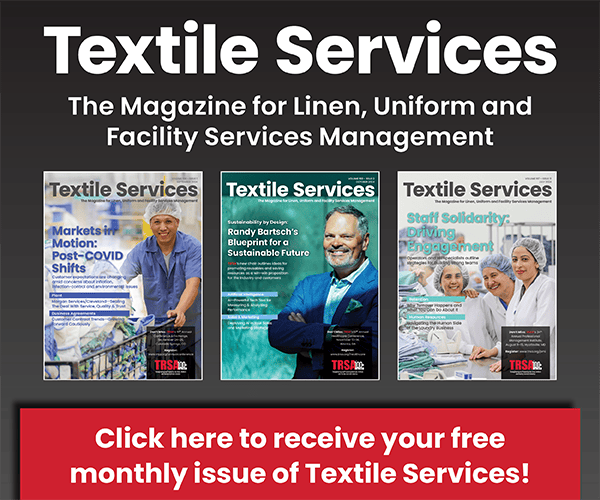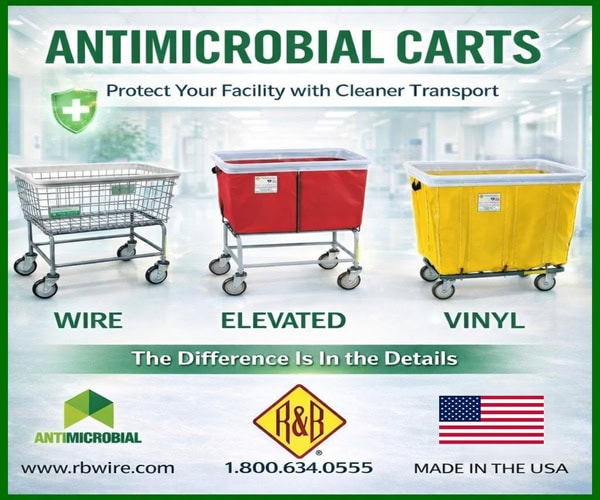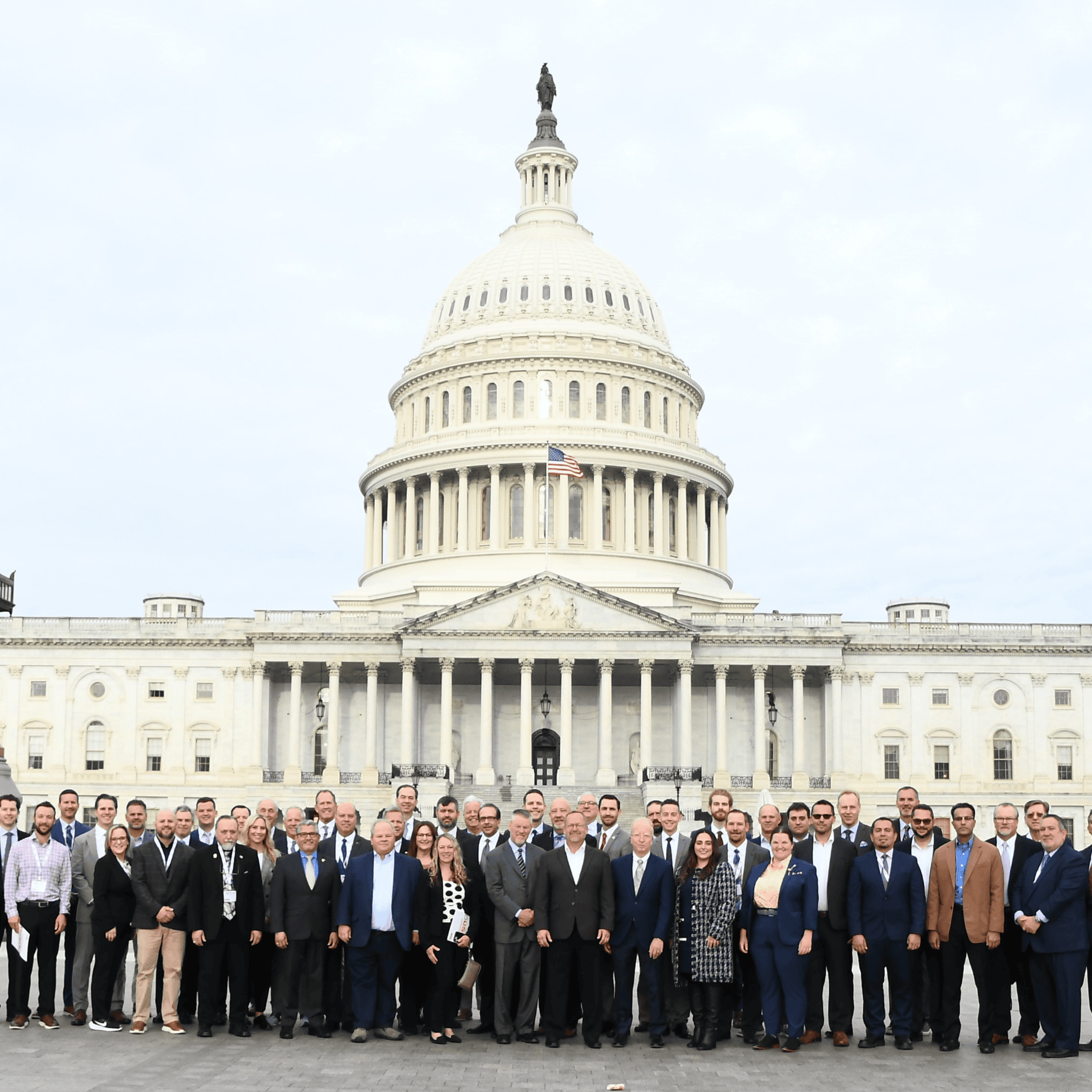
TRSA develops relationships with policymakers to ensure our industry has a seat at the table in the policy process.
We work with elected officials, regulators, industry coalitions, and other relevant stakeholders to boost awareness of our industry and provide technical expertise on the ways that legislation and regulation impact the linen, uniform and facility services industry.
TRSA proactively addresses and responds to national, state and local policies that could harm our industry, while also seeking opportunities to secure and expand our markets.
Reusables
TRSA promotes reusable healthcare textiles (HCTs) for their significant advantages over single-use disposables, including environmental sustainability, supply chain protection, safety and cost-savings. Environmentally, Life Cycle Assessments (LCAs) find that reusables reduce water and energy consumption, greenhouse gas emissions and solid waste generation. Case studies across multiple health systems find cost savings when switching from disposables to reusables. See the studies below to learn more about the benefits of reusables.
National Academies of Sciences, Engineering and Medicine (NASEM) Workshop Examining Benefits of Reusable HCTs
Summary | Official Proceedings | Interactive Workshop Overview
Reusables vs. Disposables Issue Brief
Strengthen Healthcare Supply Chain Issue Brief
Washington Post Article on the Environmental Sustainability and Cost Savings of Switching to Reusables
Reusable vs. Disposable Life Cycle Assessments
Isolation Gowns
Cleanroom Coveralls
Isolation Gowns, Wipers, and Food Service Napkins
Advancing the Adoption of Reusable Personal Protective Equipment (PPE) in Healthcare
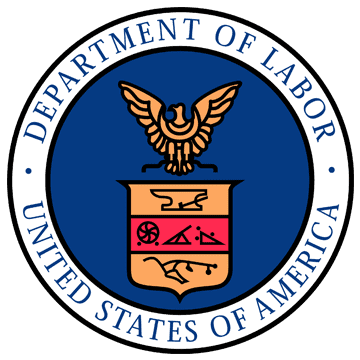
Labor
TRSA monitors and responds to labor policies that impact our industry and the American economy. TRSA engages in the rulemaking process for new regulations by submitting public comments to the Federal Register and signing onto coalition letters in conjunction with other industry groups. We keep TRSA members appraised of labor developments through our digital newsletters and Textile Services magazine.
PFAS
Per- and polyfluoroalkyl substances (PFAS) have been widely used in consumer products, including textiles, for their durable properties including barrier protection and heat, water and stain resistance. Recent studies have connected certain PFAS with adverse environmental and public health effects.
TRSA is collaborating with policymakers to ensure an effective and balanced approach to addressing PFAS-related concerns based on the best science and appropriate consideration of risk.
TRSA regularly coordinates with Congress, the EPA, state and local policymakers, members of the TRSA Environmental Committee, industry groups, and other stakeholders to protect our industry and develop opportunities for the linen, uniform and facility services industry to take proactive steps with PFAS remediation.
TRSA’s PFAS Resources provides comprehensive resources to help your business understand the regulatory landscape and take action
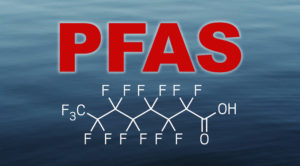

Tax Policy
TRSA works to secure and expand markets for the linen, uniform and facility services industry. TRSA advocates for pro-business tax policies to support our industry’s positive local economic impacts, including employment and workforce development, major capital expenditures, and other community investments. We identify and pursue opportunities at the state and national level to enact favorable tax policies.
Kentucky Double Tax Correction
TRSA is working with the Kentucky Department of Revenue and General Assembly to correct an erroneous regulation that results in double-taxation of our industry.
Wisconsin Manufacturing Tax Eligibility
We are pushing for linen supply and industrial laundry companies to gain access to a Wisconsin tax credit, which would have positive environmental, economic and social impacts.
Regulation & Other Topics
New York City Congestion Tolling Program
TRSA launched a grassroots campaign engaging TRSA operators with state legislators to oppose this program that was slated to take effect June 2024. We also joined forces with the Trucking Association of New York (TANY), filing a declaration in support of their lawsuit.
Keep Critical Services Operating
During the pandemic, TRSA worked to get our industry recognized as critical services in every state to keep our members open and operating.
Heat Illness Protection
The Occupational Safety and Health Administration (OSHA) has filed a proposed rule to create the first national heat standard for indoor and outdoor workplaces. TRSA has been involved with this topic since OSHA announced the National Emphasis Program (NEP) in 2021 and is submitting comments on this proposed rule.
OSHA Proposed Rule Brief | National Emphasis Program Brief | OSHA Heat Illness Compliance Resources
OSHA Prevention Campaign | NEP Instruction
Shop Towel Resources
TRSA has compiled shop towel resources including research, best practices, reusable vs. disposable comparisons and an EPA compliance toolkit.
Evaporation Credits
TRSA supports operator members seeking evaporation credits from their local publicly owned treatment works (POTWs). Submit this contact form to TRSA if interested in our resources that make the case for a fair credit.
Wage and Hour Division
TRSA reports on rulings by the DOL’s Wage and Hour Division, which enforces overtime pay rules under the Fair Labor Standards Act.
U.S. Workplace Safety Statistics
TRSA works with the federal Bureau of Labor Statistics to ensure key incident rates are calculated each year to gauge our industry’s safety performance. Comparison with SafeTRSA survey results indicates TRSA member companies are safer than nonmembers.




